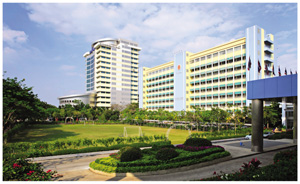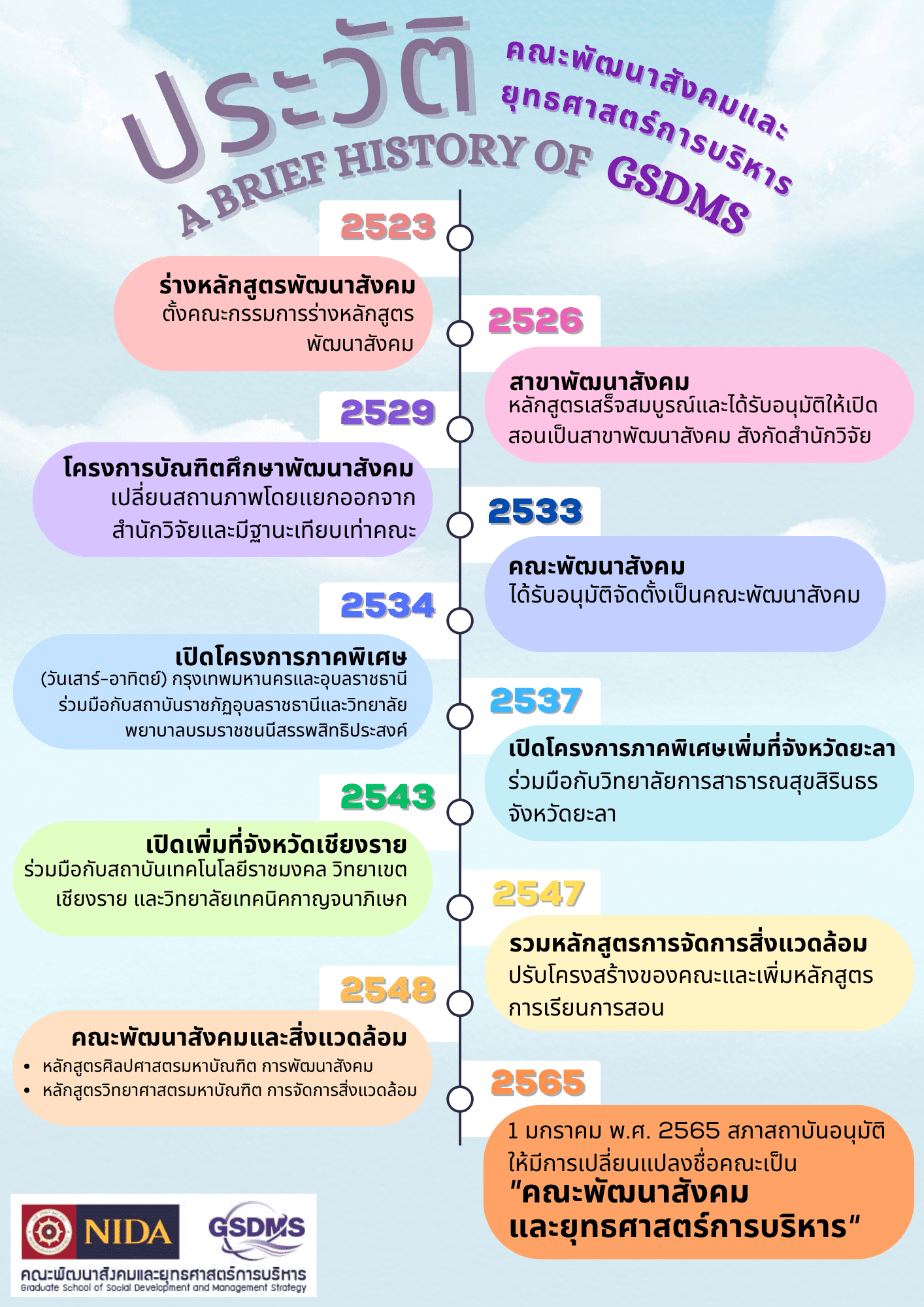
Graduate School of Social Development and Management Strategy, formerly the School of Social Development, had its inception as the Social Development Program under the supervision of the Research Center in 1983. The Social Development Program was initiated by a group of faculty members at the Research Center who shared an opinion that the field of social development was unfortunately not pioneered at the National Institute of Development Administration (NIDA). At the time, there were only four graduate schools comprising public administration, applied statistics, development economics, and business administration.
Furthermore, these faculty members objectively viewed that previous research studies should have been brought into the faculty’s instructions. Likewise, in providing graduate courses, the new body of knowledge gained from research conducted should have been embraced in the researchers’ pedagogy. Taking up this precept, this group of faculty members at the Research Center was of the opinion that the Institute should have offered teaching program and learning activities in the field of social development. The program should have unique characteristics. In other words, the program should be offered in an interdisciplinary mode with an emphasis on research. The program should be focused on producing graduates filled with knowledge and competency in analyzing society in an integrated manner. These graduates should be able to undertake research in an effective and systematic manner. As a consequence, the Commission on Drafting the Social Development Program was established in 1980. The program was completed and approved its provision as the Social Development Program under the Research Center in 1983. Subsequently, in 1986, the status of the Social Development Program under the Research Center was shifted to the Social Development Graduate Study Program. The program was officially separated from the Research Center and became an independent unit equivalent to a graduate school whose director was the program director. Four years later, on August 31, 1990, the program was approved its new status as the School of Social Development.
To expand the educational opportunity to all the employed who could not take study leave and those who were in remote provinces where higher education programs were scarcely organized, the School of Social Development started its part-time programs on weekends. The programs were provided firstly in Bangkok and Ubon Ratchathani Province in 1991, and then was extended to Yala Province and Chiang Rai Province in 1994 and 2000, respectively. For cost-effectiveness in terms of place, these part-time programs were provided in the form of a joint program between the School of Social Development and other academic institutes in each locality. The three cases in point included the programs in (1) Ubon Ratchathani Campus in collaboration with Ubon Ratchathani Rajabhat University and Boromarajonani College of Nursing Sanpasithiprasong, (2) Yala Campus in collaboration with Sirindhorn College of Public Health in Yala Province, and (3) Chiang Rai Campus in collaboration with Rajamangala University of Technology Lanna Chiang Rai and Kanchanapisek Chiang Rai Technical College.
In the year 2004, NIDA Board of Regents adjusted the structure of the School of Social Development, which provided merely social development studies. The new program embraced the field of environmental management which was affiliated, at that juncture, by the Graduate Studies Development Office. In 2005, the “School of Social Development” was hence renamed the “Graduate School of Social and Environmental Development.” This made the Graduate School to consist of two major fields of studies: Master of Arts in Social Development and Master of Science in Environmental Management. And currently, on January 1, 2022, the Institute Council has approved changing the faculty name to "Graduate School of Social Development and Management Strategy."


